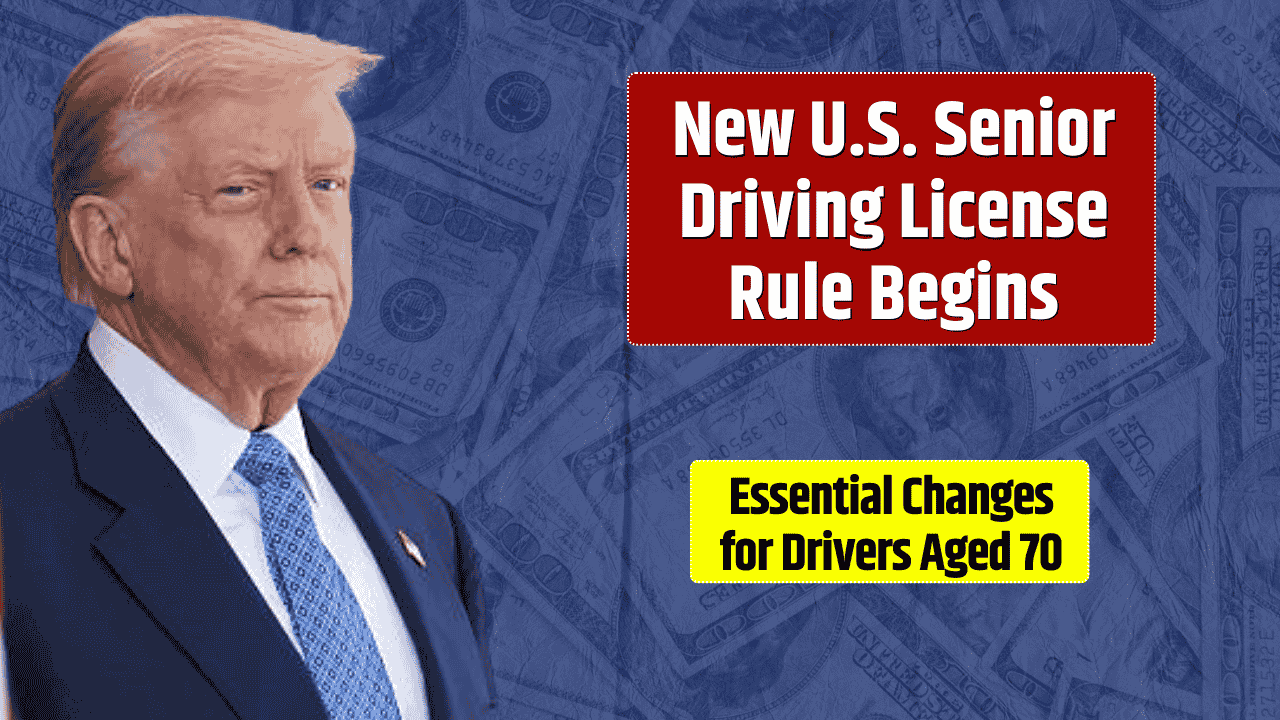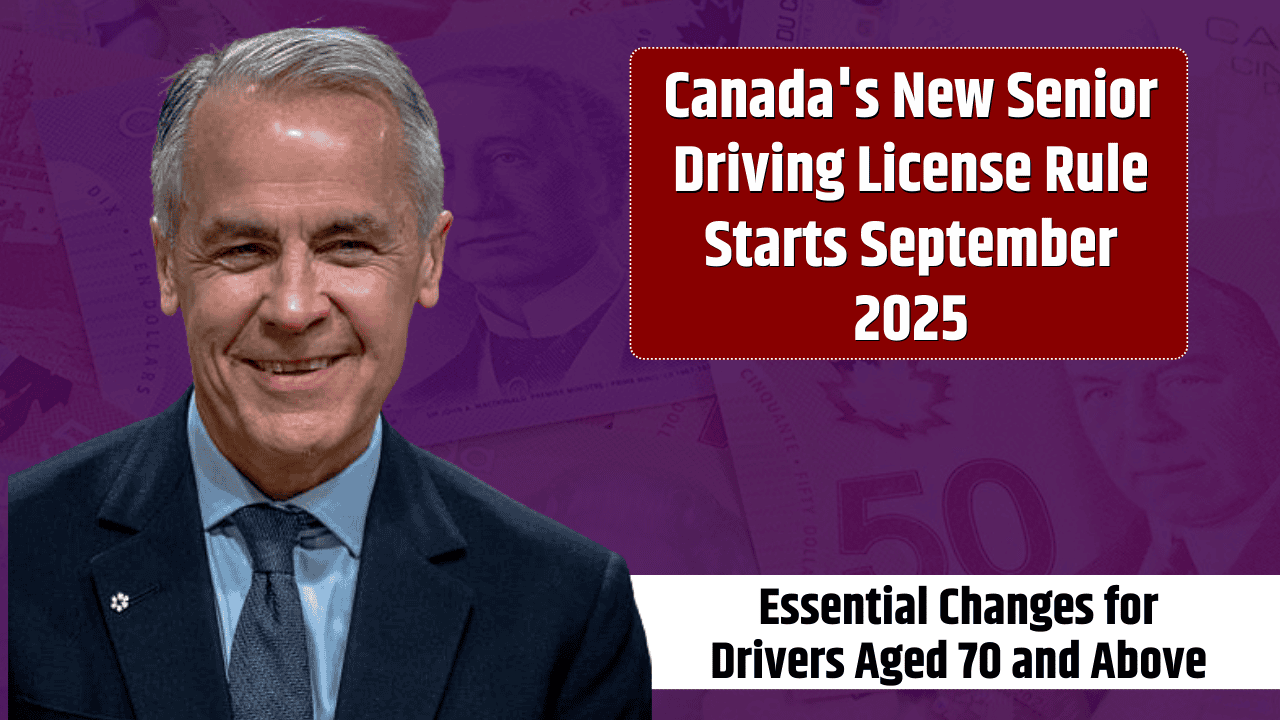The sight of an 80-year-old zipping down the highway isn’t unusual anymore, and that’s exactly why Washington has decided to step in. Starting September 2025, the U.S. Department of Transportation (DOT) will roll out new federal guidelines for senior drivers, kicking in at age 70.
Now, don’t imagine cops camping outside retirement homes with car keys in hand. This isn’t punishment—it’s precaution. The focus is on smarter license renewals: routine vision checks, reaction-time evaluations, and optional refresher courses that seniors can take if they want a little confidence boost behind the wheel.
Why the Change is Happening
According to the Federal Highway Administration, nearly 48 million Americans over 65 hold a valid driver’s license—a number rising sharply as baby boomers hold onto their independence. But the NHTSA has long flagged issues like slower reflexes, impaired night vision, and mild cognitive decline that make driving riskier with age.
Instead of imposing a blanket ban (like cutting everyone off at 80), the new framework shifts the question from “How old are you?” to “How capable are you right now?”
The “Reverse Graduated Licensing” Model
Remember how teens start with permits and slowly gain more privileges? This new setup is the opposite. Drivers over 70 won’t lose rights overnight, but they’ll face more frequent checks as they get older. States will still decide the finer details, but the federal baseline looks like this:
| Age Bracket | Testing Frequency | Possible Restrictions |
|---|---|---|
| 70–79 | Every 5 years | None unless flagged |
| 80–86 | Every 3 years | Daylight-only or local driving limits if needed |
| 87+ | Every 2 years | Stricter reviews; restricted licenses more common |
This respects the fact that a healthy 75-year-old can be safer than an 85-year-old with declining reflexes.
The Reporting Channel: Controversial but Effective
Here’s the spicy part—family, doctors, or even concerned neighbors can flag a senior driver they believe is unsafe. Once flagged, the DMV can require a medical checkup or a road test. Sounds invasive? Maybe. But states like California and Illinois already use similar systems, and they’ve prevented crashes without stripping away independence.
Federal vs. State Rules
Here’s where things get tricky: licensing has always been a state responsibility. The new law sets minimum standards, but how it plays out will vary.
- Some states may allow telehealth vision screenings, others will demand in-person exams.
- Rollout dates will be staggered.
- Local DMV sites will have the most accurate info—California’s Senior Driver Guide already lays out what’s coming.
What Happens If You Don’t Pass
Failing a test isn’t an automatic death sentence for your driving privileges. If you struggle with night driving, for example, you might get a restricted license that keeps you off highways after dark. It’s about tailoring rules to actual ability, not just age.
For those who eventually hang up the keys, mobility options are expanding. Ride-sharing apps, senior shuttles, and reduced-fare transit programs supported by the U.S. Administration for Community Living ensure independence doesn’t vanish when the car does.
The Bigger Picture
America is graying fast. By 2030, one in five Americans will be over 65. Driving equals freedom, and no one wants to yank that away prematurely. This new law is about striking balance: safer roads without unfairly sidelining people who are still capable of driving. It’s not about taking away the keys—it’s about tuning up the system so everyone stays safe.
FAQs
Does the new law ban seniors from driving after a certain age?
No. It only changes how often and how thoroughly licenses are renewed, with safety-focused tests.
At what age do the new requirements begin?
Drivers start facing additional checks at 70, with stricter reviews at 87.
Can the DMV revoke a license immediately if someone is flagged?
Not right away. A flagged driver must first go through an evaluation or medical review.
Are telehealth exams allowed for license renewal?
In some states, yes. Others will stick with in-person testing only.
If I fail a test, do I lose my license completely?
Not necessarily. You might qualify for a restricted license—like daytime driving only—instead of a full suspension.














